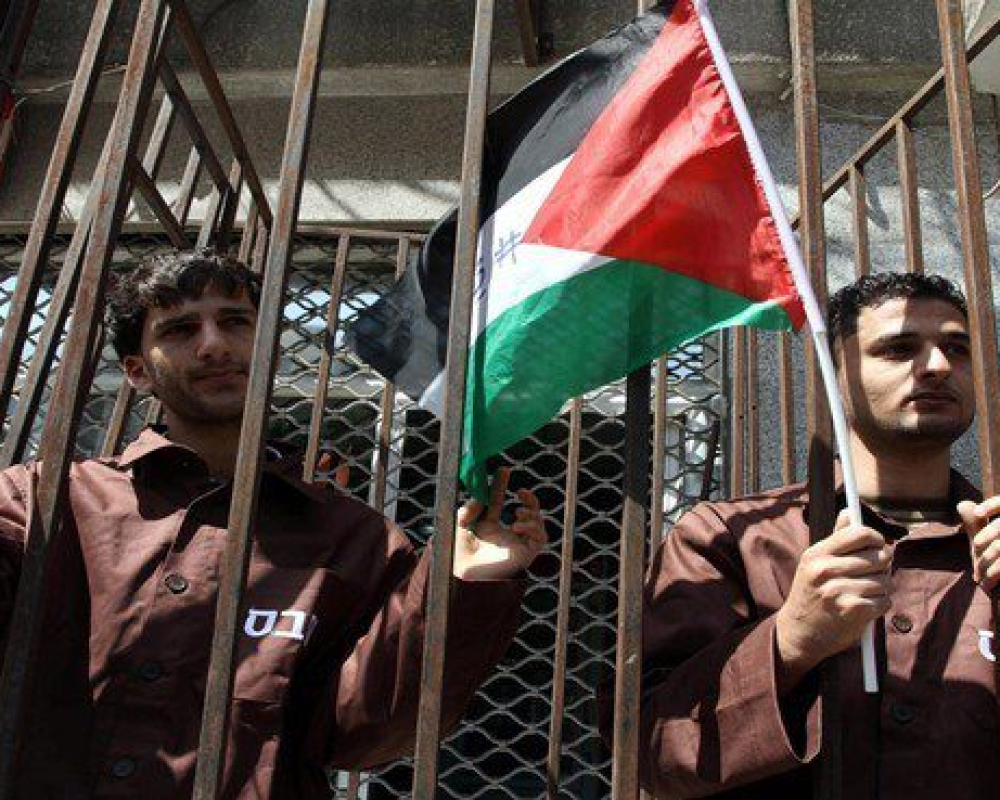
Bethlehem / PNN /
Palestinian freedom fighters incarcerated in Israel for their resistance of the occupation last night suspended a hunger strike that was planned to start today after the Israel Prison Services (IPS) conceded to their demands and stopped all punitive and arbitrary measures against them.
The Commission of Detainees and Ex-Detainees Affairs and the Palestinian Prisoner's Society said in a brief statement that the prisoners decided to suspend the hunger strike after the IPS decided, following a long meeting with representatives of the prisoners, to cancel all punitive measures imposed against them called for by the fascist Israeli cabinet minister Itamar Ben Gvir.
The freedom fighters have declared a mutiny against prisoner rules since 4 February following the implementation of repressive measures against them.
As part of their struggle against these measures, 2,000 prisoners were supposed to go on a hunger strike on the first day of the holy month of Ramadan, which coincides today.
The measures imposed by the IPS on the prisoners included controlling the amount of water they use, reducing the duration of showering so that prisoners are allowed to shower at a specific hour, and locking bathrooms designated for showering in some prisons.
Also among the measures is providing the prisoners with bad bread and in some prisons the IPS provided them with frozen bread, as well as doubling the raids and searches against them using stun grenades and sniffer dogs.
Among them also is the approval in a preliminary reading of a draft law depriving prisoners of medical treatment and some surgical operations, and the approval of the Ministerial Legislative Committee in the Israeli government of a draft law approving capital punishment for prisoners involved in the armed resistance.
The IPS also imposed other repressive measures, including doubling the solitary confinement of prisoners, removing television sets from some sections where detainees are held, escalating transfers of the leaders of the prisoners’ movement, particularly those serving life terms, and threatening in some central prisons to close public facilities on Fridays and Saturdays, as was the case in the Naqab (Negev) prison.
More than 4,780 freedom fighters are currently incarcerated in Israel, including 29 female prisoners and 160 minors.